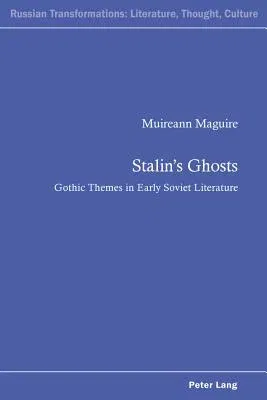Muireann Maguire
(Author)Stalin's Ghosts; Gothic Themes in Early Soviet LiteraturePaperback, 28 November 2012

Qty
1
Turbo
Ships in 2 - 3 days
Only 2 left
Free Delivery
Cash on Delivery
15 Days
Free Returns
Secure Checkout

Part of Series
Russian Transformations: Literature, Culture and Ideas
Print Length
331 pages
Language
English
Publisher
Peter Lang UK
Date Published
28 Nov 2012
ISBN-10
303430787X
ISBN-13
9783034307871
Description
Product Details
Author:
Book Format:
Paperback
Country of Origin:
CH
Date Published:
28 November 2012
Dimensions:
22.35 x
14.73 x
1.78 cm
ISBN-10:
303430787X
ISBN-13:
9783034307871
Language:
English
Location:
Bern
Pages:
331
Publisher:
Weight:
476.27 gm